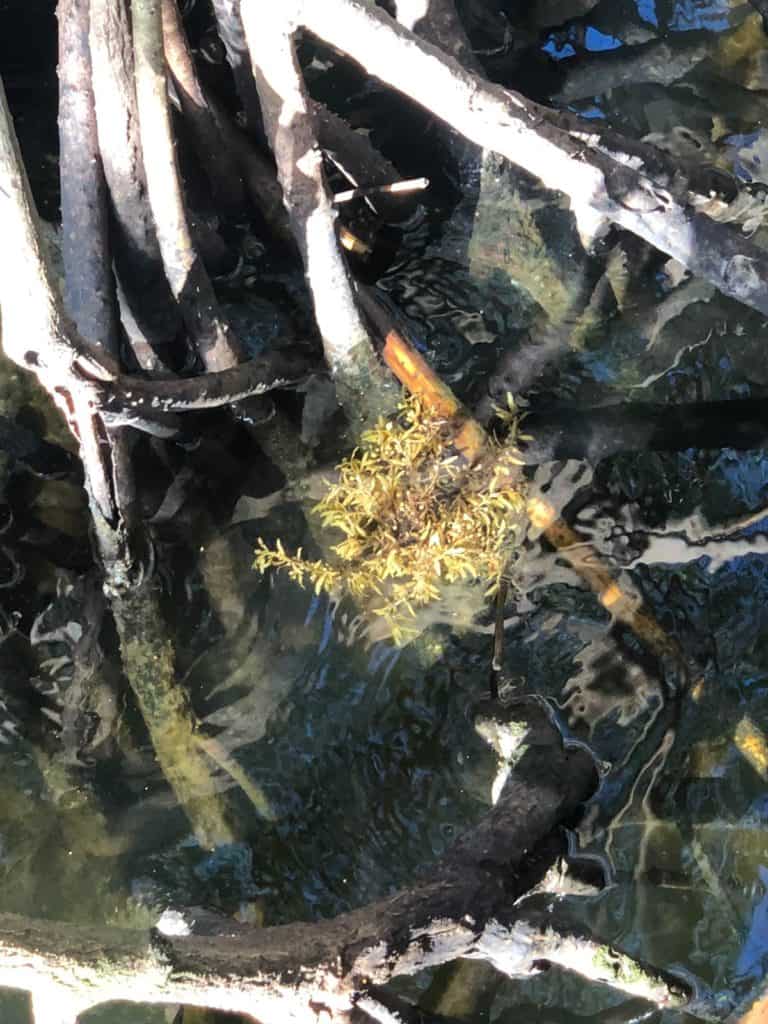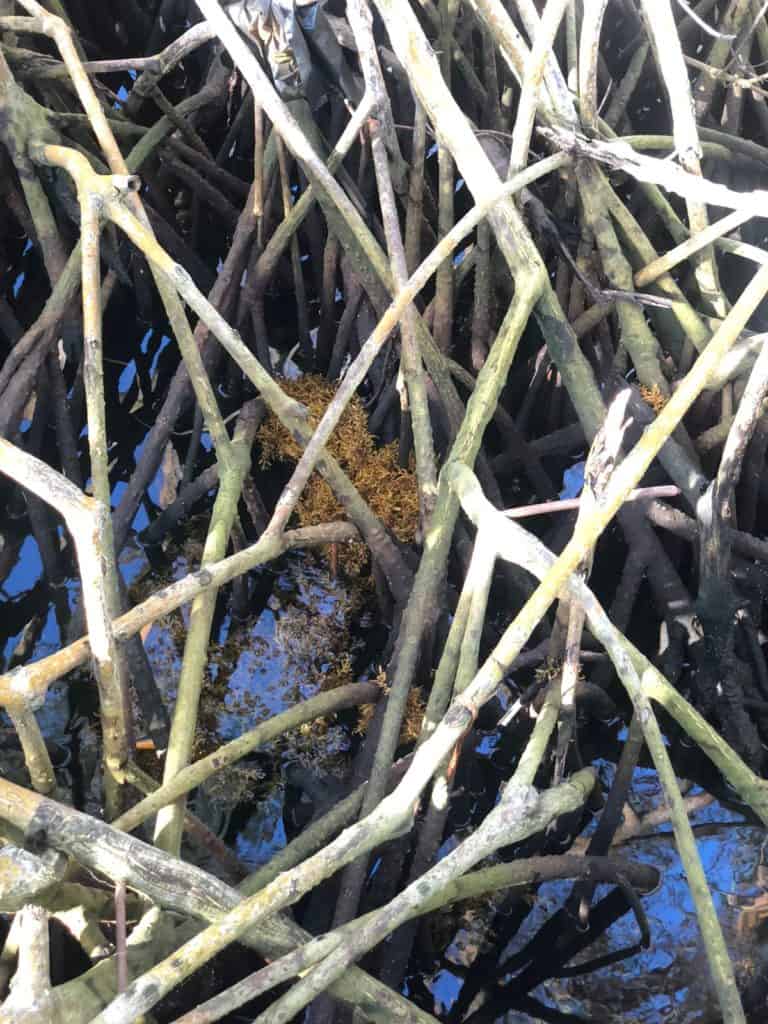A light but putrid breeze creeping through the mangrove forest of the Petit-Trou Lagoon set the scene for an early morning investigation by my team of environmentalists. Something had destabilised the ecosystems therein and was causing the trees to die.
Since August, our NGO, Environment Tobago, has fielded several reports on the state of the mangrove forest leading us to take action; our investigation quickly revealed that the mangrove forest was suffering from an affliction known as “dieback”.
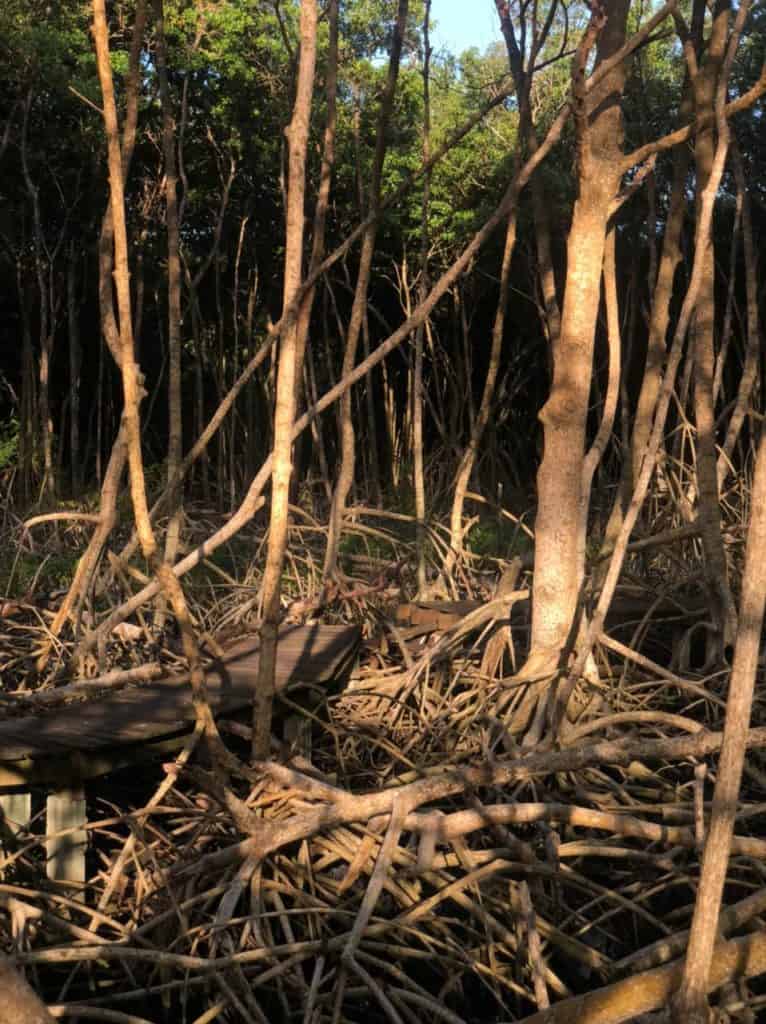
This disease which affects woody plants is characterised by progressive death of twigs, branches, shoots, or roots, starting at the tips. While there are many factors threatening the health of the mangrove forest, it quickly became clear that an overabundance of rotting sargassum seaweed was the culprit for both the scent and the degradation. Large deposits of sargassum were piling up within confined spaces, rotting, emitting noxious gasses, and destabilising the ecosystem. Once abundant mangrove root crabs have now become a rare sighting.
Professor Mona Webber, Director at the Centre for Marine Sciences at the University of the West Indies, Mona Campus, Jamaica, has found that sargassum accumulation in mangroves and seagrass beds becomes toxic when it begins to rot, producing hydrogen sulphide and killing these ecosystems.
Discolouration of nails holding together the boardwalk which runs as a well-organised access network throughout the mangrove at Petit Trou, served as evidence of the exposure to the gaseous emissions into the atmosphere over time.
Petit Trou Mangrove Forest Importance to Tobago
Located in south-west Tobago, the mangrove forests of the Petit Trou Lagoon are synonymous with the much beloved aesthetic of the neighbouring Tobago Plantations compound. The lagoon’s geographic placement along the Atlantic coast, however, exposes its mangrove forests to an annual influx of sargassum deposits. This creates several effects, some of which are detrimental to the survival of the mangrove and the biodiversity that exist in the water-based areas of the ecosystem.
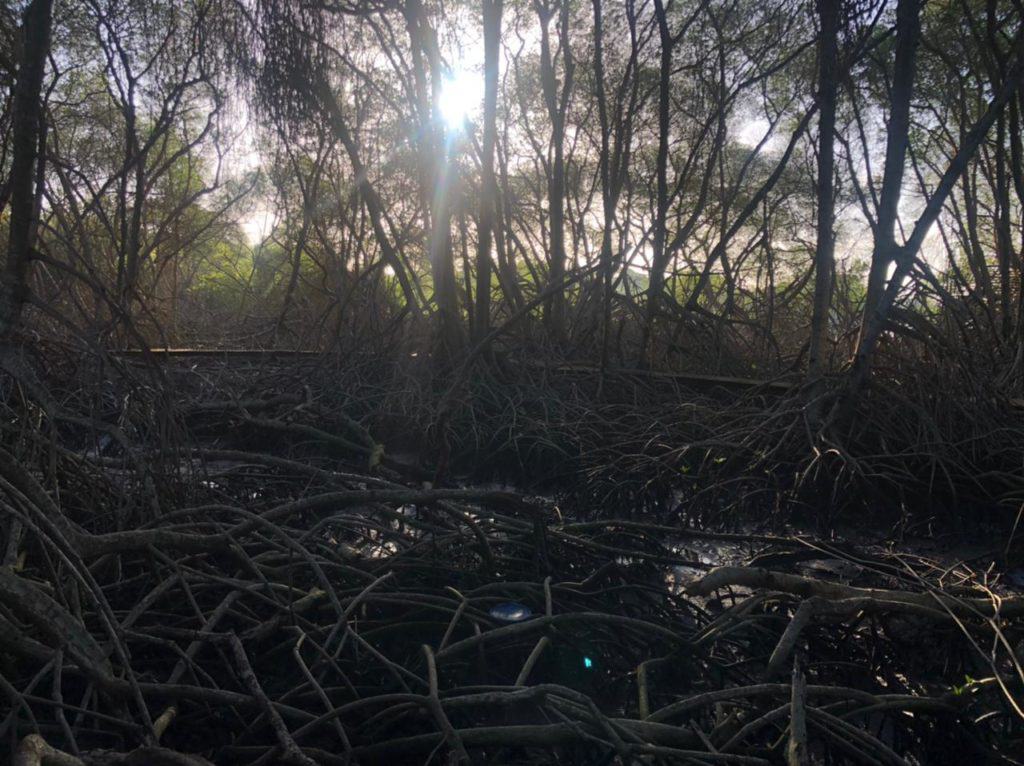
The scent and sight of the decaying mangrove forest now stand in sharp contrast to the many luxurious properties and boasts of the island’s largest resort.
We at Environment Tobago believe that the eco-systems and environmentally sensitive areas in and around the said compound should be equally looked after. Sadly, such is not the case, as per the alarming but harsh realities witnessed during our team visit.
The Role of mangrove Forests in Climate Action
Understanding the role of mangroves is key to understanding why their preservation matters to humanity. Mangroves represent a rich and high diverse natural resource and are home to a wide variety of uniquely adapted biodiversity. The mangrove ecosystem plays a pivotal role by providing a linkage between marine and terrestrial ecosystems.
This linkage maintains stability, not only of the mangrove habitat itself, but also for other related coastal ecosystems such as sea grass beds and coral reefs (as seen in the case of the Bon Accord lagoon for example).
This ecosystem also plays a significant role in replenishing various fish populations for both coastal and lagoon fish species. The nutrients given to the lagoon as a detritus from the mangrove ecosystem are carried into the coastal waters by the tidal currents.
The Way Forward
The answer is simple—prevention is always better than a cure. The framework for Tobago’s policies that address such occurrences are in dire need of revamp and review. More importantly, enforcement is needed; not just in Tobago, but on a national level. The time has come for stringent penalties on those found in breach of such laws.
Tobago also needs to address the rampant dumping of solid waste from domestic and commercial sources into mangrove forests. This, together with malfunctioning residential and commercial sewage containment operations, is a major contributing factor to consider in any mission to save Tobago’s mangrove forests.
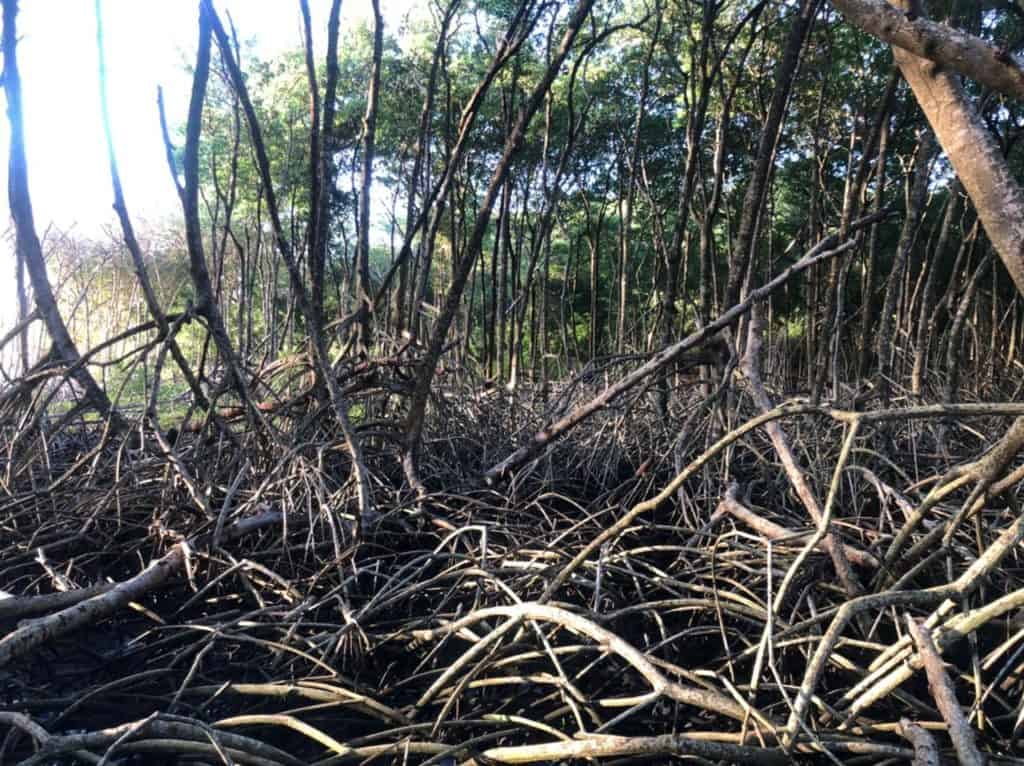
Climate action through resilience building, conservation, and a keen sense of urgency to educate the public and all stakeholders not just within Tobago, but nationally and regionally should be prioritised even more so at this time.
Tobago, being the smaller of the twin island republic, is well positioned to be an example of what can become a climate resilient, protective and proactive society. However, Tobago also stands to lose from the fast pace degradation and destruction of sensitive ecosystems. It is up to the authorities, civil society and the average citizen to understand their worth and to guard jealously what remains of nature’s gifts to us.
Would a concrete structure sustain humanity? Would the brick-and-mortar ideology and concept of development serve the future of the island? If this is the case, then a serious revisiting of our priorities is needed to properly understand how important sensitive ecosystems are for the longevity of not just biodiversity, but humanity as we know it on Earth.




